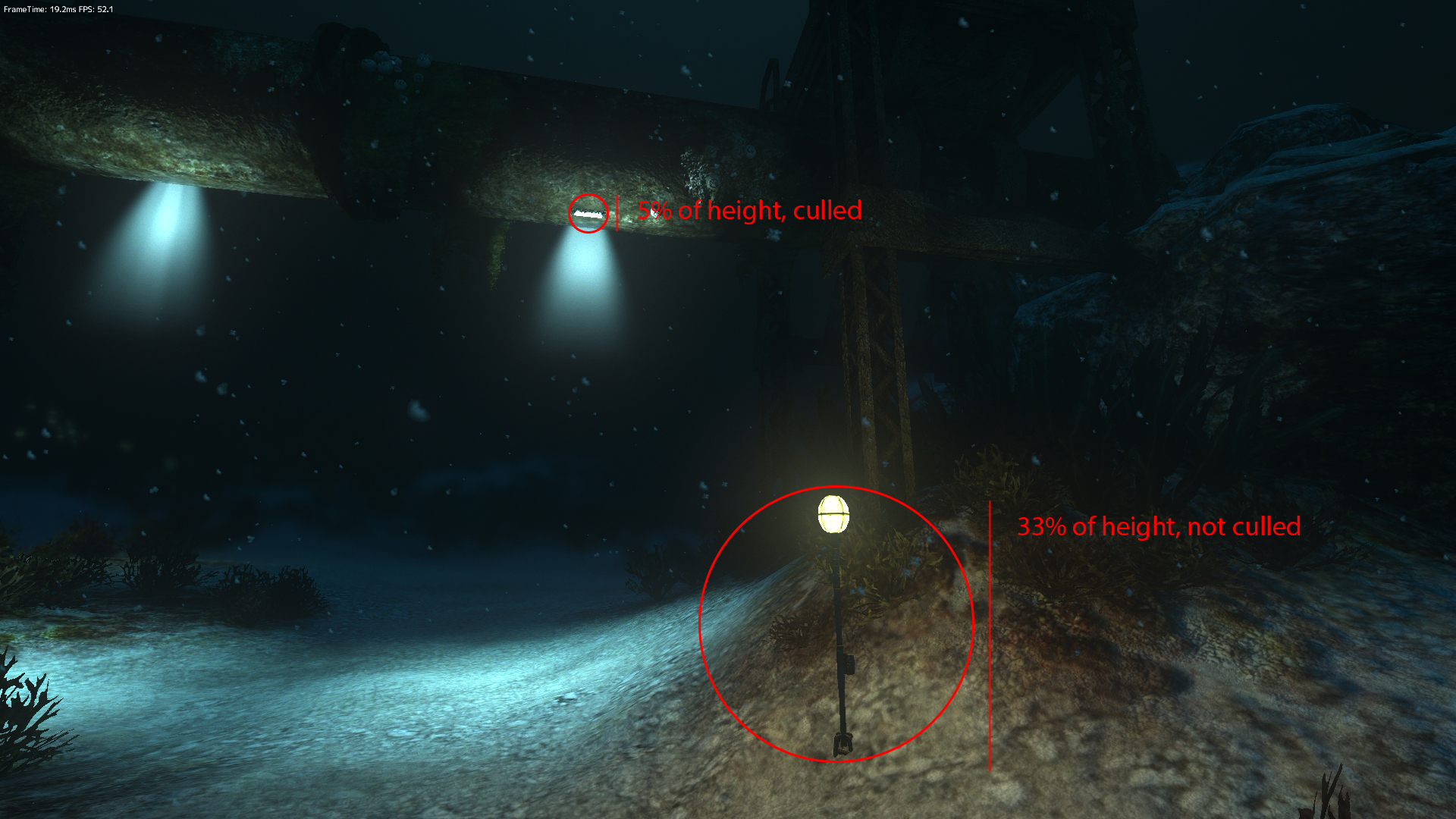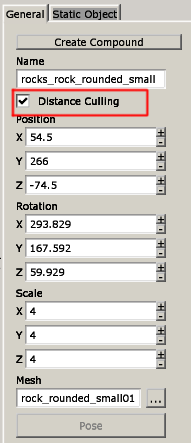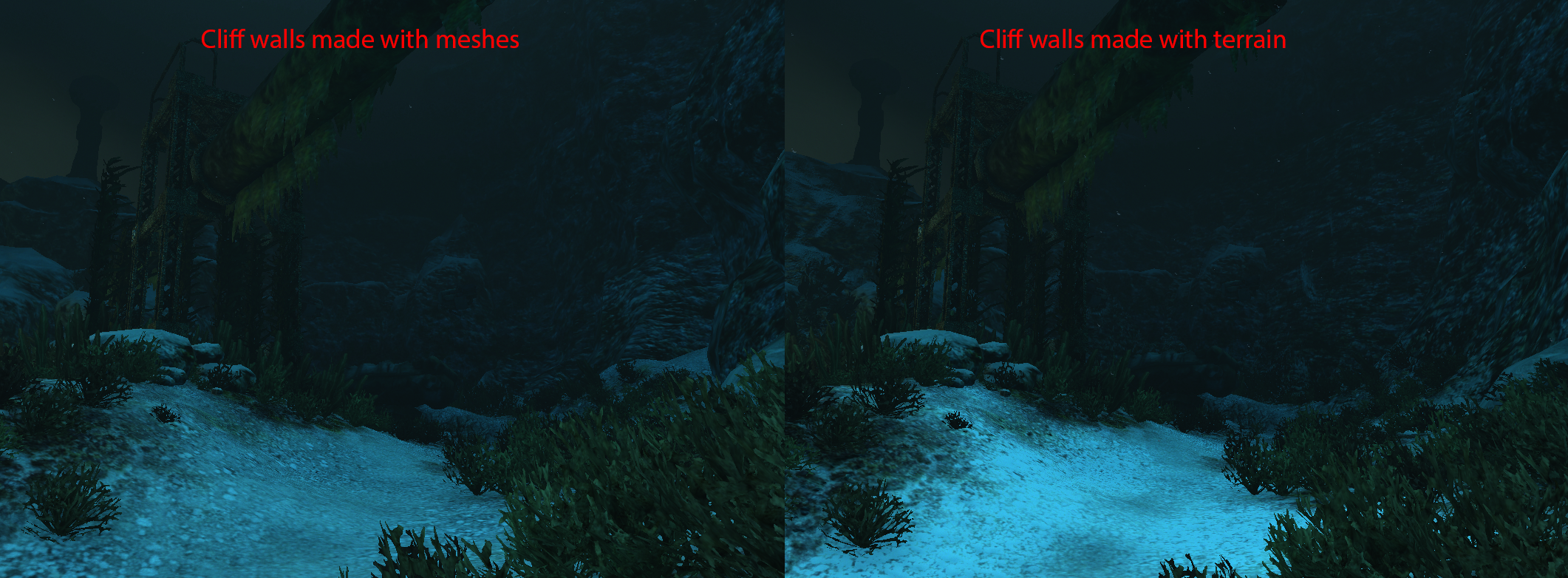Sidebar
Table of Contents
Level Design - Outdoor Level Performance
Introduction
This tutorial will show some steps on how to optimize an outdoor level to get better performance.
Terrain
The terrain is the main part of an outdoor level. It should make out most of the geometry of the level.
Rendering terrain is much faster than rendering multiple meshes. To get good performance it is important to use the terrain to make up most of the silhouette of the level and just use meshes for important landmarks and details.
To be able to use terrain for all of the silhouette it is possible to set a Cliff Texture (soon in the editor). With Cliff Textures it is possible to use terrain as walls instead of having to use meshes. The cliff texture is automatically projected to the steep cliffs of the terrain.
Terrain optimization checklist:
- Unit Size should be 1 or higher
- Geometry Patch Size should be the same size as Texture Patch Size
- Undergrowth Fade End should be 40 or lower
- Don't use too many different undergrowth materials (1x draw calls per material type)
- Use Cliff Texture for walls
Fog
Fog is great for adding atmosphere and scale to a level. But it can also be used to increase performance of the level.
Performance can be increased in two ways by using fog. The first is by using a fog color with alpha set to 255. Setting alpha to the max value means that objects further away than the Fog End will get fully fogged and get the color set to the fog color. Since the object gets fully fogged we can now render it without texturing which greatly increases speed.
When the alpha is set to 255 it is also possible to activate Fog Culling in the settings. This will cause any object further away than Fog End to get culled and not rendered at all. This setting should only be used when there is no need for silhouettes.
Distance Culling
Distance culling is a technique for removing objects that are far away from the player. It works by calculating how big an object will be on the screen and then removes it if it is smaller than the selected value. It is also possible to set a minimum range, any object closer than this will never get culled.
Distance culling works on all types of objects. Objects that get culled will fade in/out and not pop directly. A good value for the Screen Size parameter is 5-10%.

Each entity and static mesh has a setting called “Distance Culling”. Having this toggled will mean that objects can get culled by distance culling. Most objects should have this toggled. The only objects that should disable distance culling are gameplay objects, landmarks and other important objects like lamps.

Distance Culling is the most important setting for getting good performance on outdoor levels.

